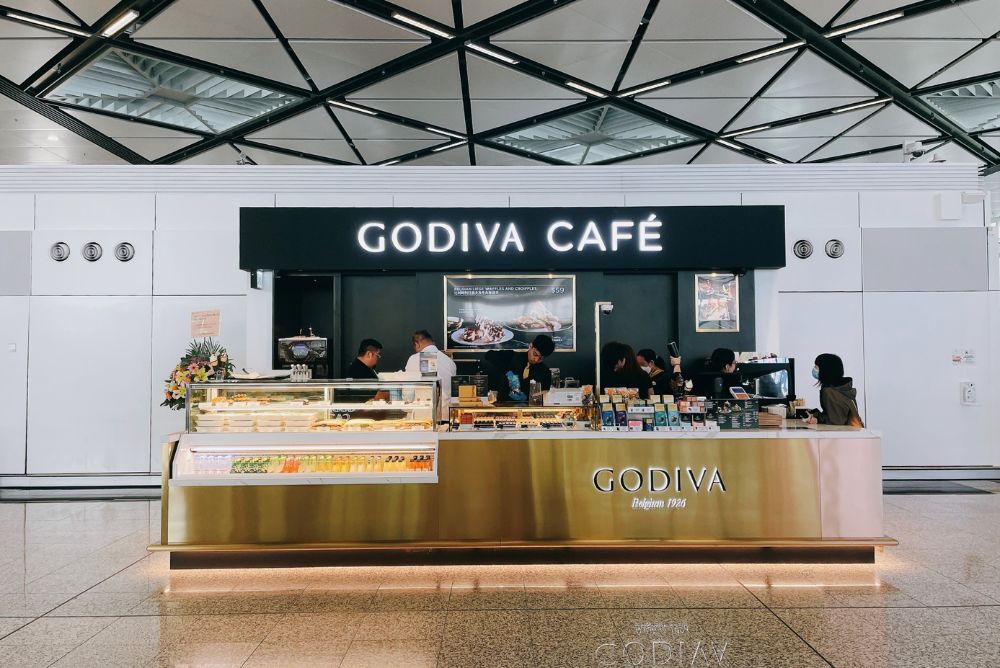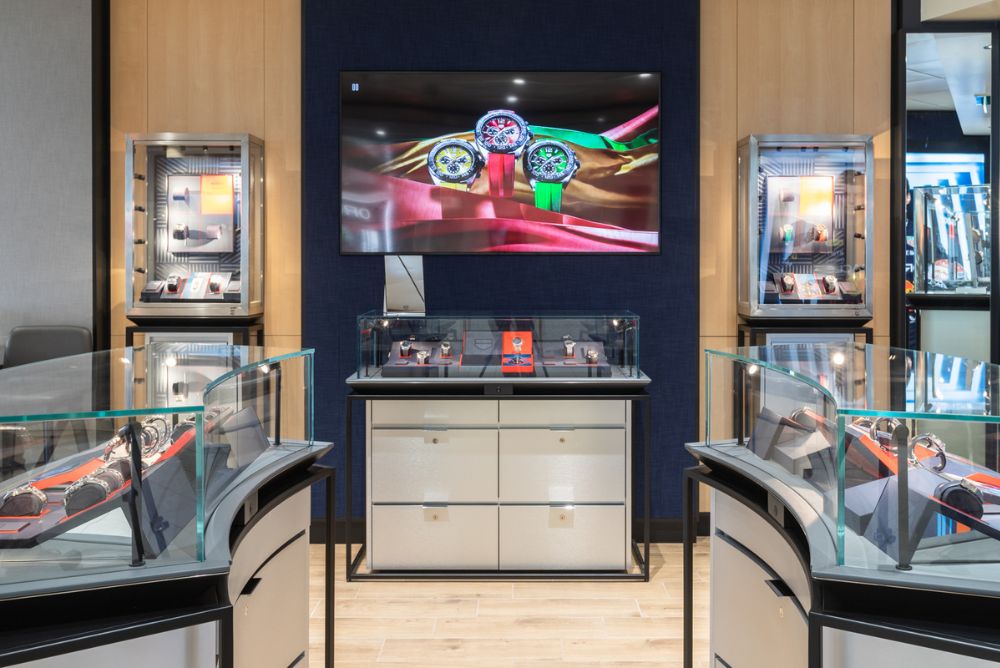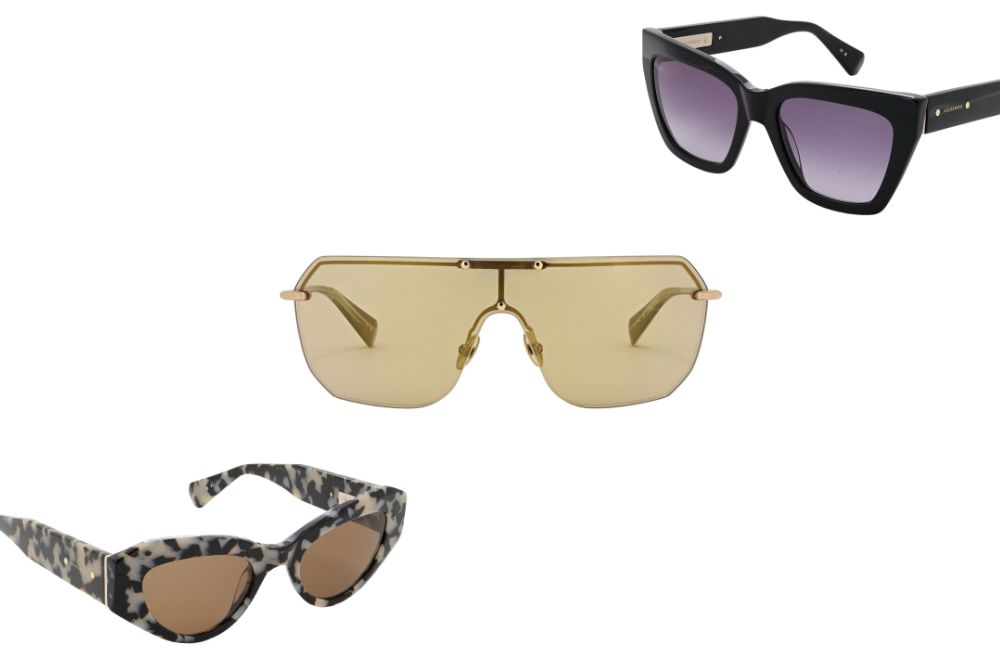Robust travel retail growth expected in China, suggests m1nd-set research
By Andrew Pentol |

M1nd-set’s China-focused study on traffic and shopper insights suggests the China travel retail industry will return to growth in 2021.
Swiss research agency m1nd-set believes there is ‘every reason to be confident’ about 2021 travel retail growth prospects in China. This is despite renewed travel restrictions imposed during the lunar new year period.
M1nd-set is making this forecast based on the latest research it has undertaken on the Chinese market.
According to m1nd-set, the China-focused study on traffic and shopper insights, demonstrates that 2021 will mark the beginning of a robust return to growth for the travel retail sector in China. This is in light of consumer confidence, shopper behavioural changes and the Chinese consumer’s ‘relentless desire’ to travel.
M1nd-set’s Business 1ntelligence Service (B1S) traffic and shopper insights data tool, indicates China will experience an increase of more than 200% in international departures in 2021, to reach circa 30 million international departures.
Pre-Covid levels are expected to return by 2023, when outbound traffic is forecast to reach 88 million, following 108% growth in 2022 and 44% in 2023.
RENEWED COVID-19 OUTBREAK
These growth forecasts come despite travel restrictions imposed ahead of the Chinese New Year holiday, during which 28 million Chinese consumers were in lockdown. The lockdown followed a renewed outbreak of the Covid pandemic in the northern Heilongjiang and Hebei provinces.

China will experience an increase of more than 200% in international departures in 2021, according to m1nd-set’s Business 1ntelligence Service traffic and shopper insights data tool.
The Swiss research agency’s China market research also details the profile of the Chinese traveller, the impact of the pandemic on their daily life, and in particular the impact on their travel behaviour.
According to m1nd-set, improved testing and containment measures, accompanied by the arrival of the vaccine, means the latest outbreak is not expected to be as damaging as when the pandemic first manifested itself over 12 months ago.
Traveller behavioural trends have changed considerably in China since the outbreak of the pandemic. M1nd-set reports that Chinese travellers are now paying significantly greater attention to health and safety measures and practicing greater hygiene when travelling.
The impact of the Covid-19 vaccine and how it will affect Chinese travellers’ desire to travel and their planned shopping behaviour, is also analysed in the research.
More than half (53%) of Chinese travellers interviewed said their household income was negatively impacted as a result of the pandemic. This is moderately lower than the global average of 55%, with a drop of between 5% and 20% compared to pre-Covid levels in China.
In terms of international travel uptake, one third of Chinese travellers said they would not travel again immediately, but would do so within the first six months of restrictions being lifted.

80% of Chinese travellers who usually visit duty free stores are still expected to do so once international travel re-starts.
The Covid-19 vaccine will inevitably have a highly positive impact in China as 97% of those interviewed indicated they were willing to receive the vaccine. The majority also said they would prefer to get vaccinated as early as possible. The Chinese are more likely to consider travelling again if they have received the vaccine compared to global travellers (39% versus 31%).
When they do eventually travel internationally, the research reveals positive tendencies and challenges. While 80% of travellers who usually visit the duty free store would still do so on future international trips — this number is higher than the global average at 73%, two-thirds of Chinese travellers said they would spend less time at the airport compared to previously.
Around 27% will also spend less time inside shops, and more than half will try to isolate themselves from crowds — more so than the average traveller across all world regions.
COMMUNICATION KEY TO RECOVERY
M1nd-set Travel Retail Research Director Clara Susset commented: “Communication is key to post-Covid recovery in China. The industry will need to work collectively to restore traveller confidence and entice them back into the stores.
“It will be essential to provide easy access to clear information about health and safety measures at the airport and potential delays throughout the airport journey due to modified security measures and procedures.”
She added: “Chinese travellers express a clear preference — and a greater tendency than global travellers — for digital technology such as QR Codes as a means to learn more about products and brands in the duty free shops, search for specific products and check prices before purchasing.
“The research reveals a number of new such trends and provides recommendations on how to approach this all-important market to ensure the travel retail sector is able to benefit from the Chinese recovery as best possible.”
Meanwhile, the Middle East and Africa Duty Free Association (MEADFA) has become the latest industry trade association to sign up to m1nd-set’s B1S Covid recovery monitor initiative.

Dubai, Istanbul and Paris Charles de Gaulle Top were among the top-10 airport destinations for international passengers departing from the Middle East and Africa region in 2019.
MEADFA follows, the Asociación Sudamericana de Tiendas Libres, International Association of Airport Duty Free Stores and the European Travel Retail Confederation in partnering with m1nd-set to ensure their respective members benefit from the traffic and shopper insights data.
The B1S recovery monitor is a complimentary service provided by the Swiss research agency, which comprises quarterly reports featuring key traffic trends and relevant shopper insights, tailored to each regional association.
Highlights from the first quarterly report for MEADFA reveal that international departures in the Middle East and Africa fell by 73% between 2019 and 2020 (222.4 million passengers in 2019 to 62.3 million in 2020).
This is consistent with the traffic decline experienced in other world regions, ranging from -68% to -75%. The recovery will be among the most robust compared to other regions at +65% in 2021 (103 million international departures), +62% in 2022 and +34.4% from 2022 to 2023 (224 million international departures which is just over the pre-Covid traffic level).
Top airport destinations for international passengers departing from airports in the region pre-Covid were Dubai, Istanbul, Cairo, Paris Charles de Gaulle and London Heathrow. The other top destinations were all within the region: Jeddah, Kuwait, Adis Ababa, Riyadh and Doha.
The UAE, Saudi Arabia, India, Egypt and the UK, will make up the top five travelling nationalities from the Middle East and Africa region in 2021, according to m1nd-set’s B1S. In terms of international departure passenger numbers, Dubai will lead the rankings in 2021, followed by Doha, Abu Dhabi, Jeddah and Cairo.
As far as travel behaviour is concerned, the majority of passengers from the region (59%) prefer not to travel immediately after travel restrictions are lifted, but after around six months. Almost two-thirds of travellers (63%) say they will spend less on a daily basis post Covid and a similar number (61%) say they now spend more time on social media than before the pandemic.
LIMITED STAFF INTERACTION EXPECTED
Interaction with staff in airport shops will be among the lowest compared to other world regions. According to the study, 51% of shoppers will continue engaging with sales staff in travel retail shops post-Covid, while taking precautions.
Just 25% say they will try and test products without any concerns, significantly lower than other world regions. Looking at pre-Covid shopping behaviour, beauty is the leading category across the top travelling nationalities in the region; travel retail exclusives and staff interaction count among the top purchase drivers among these nationalities.
Susset commented: “We’re delighted that another of the leading travel retail trade associations has signed up to research partnership initiative.
“M1nd-set has had the privilege of working with MEADFA through conference presentations over the years, so we are delighted to be supporting this traditionally vibrant region and providing our insights once again to the MEADFA members.”

The majority of passengers from the Middle East and Africa region (59%) indicated they would prefer not to travel immediately after restrictions are lifted.
MEADFA President Haitham Al Majali and CEO of Jordanian Duty Free Shops added: “The Middle East and Africa region is at the crossroads of global aviation and at the epicentre of innovation in the travel retail space. As the m1nd-set insights illustrate, our recovery will be among the strongest over the next 12 months.
“While I am positive and optimistic that we will continue to remain dynamic despite this downturn, traffic is not set to return to 2019 levels for another two years.
“These insights will be an essential service to all MEADFA members as we try to navigate through these stormy waters and chart our way forward to a robust recovery. We are truly grateful to m1nd-set for their support.”
Alcohol insights: Conversion up, spend down in Q4
Conversion of visitors in the alcohol category in duty free has risen to 54% in Q4 2023,...
Heinemann Asia Pacific makes breakthrough in New Zealand at AKL
Heinemann Asia Pacific is set to enter the New Zealand market with three new retail concepts at...
Men buy and spend more in travel retail says new research by m1nd-set
Men have a higher conversion rate and spend more when shopping in travel retail, says new...
-
 Asia & Pacific,
Asia & Pacific,Alcohol insights: Conversion up, spend down in Q4
-
 Asia & Pacific,
Asia & Pacific,Heinemann Asia Pacific makes breakthrough in New Zealand at AKL
-


In the Magazine
TRBusiness Magazine is free to access. Read the latest issue now.

 Trbusiness. The travel retail Trbusiness. The magazine for global retail and duty free professionals.
Trbusiness. The travel retail Trbusiness. The magazine for global retail and duty free professionals.





















